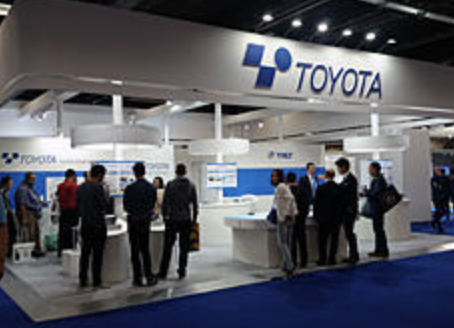Toyota Motor Corp.’s plan to take full control of Toyota Industries Corp. through a ¥4.7 trillion (approximately $31.3 billion) buyout has been pushed back as competition authorities around the world extend their review of the deal. The proposed transaction, championed by Toyota Motor’s chairman Akio Toyoda, is now expected to be delayed by several months, with the tender offer unlikely to begin before February 2026, Bloomberg reported.
Originally unveiled in June 2025, the buyout would see a real estate company within the Toyota group purchase all outstanding shares of Toyota Industries, effectively taking the firm private. Toyota Industries disclosed on October 6 that the antitrust clearance process has been slower than anticipated. While approvals have already been granted in Australia, Canada, Israel, and South Africa, regulatory assessments in other jurisdictions are still ongoing. The company now estimates that all necessary approvals will not be finalized until mid-January 2026 or later.
If completed, the transaction would rank among the largest corporate buyouts in history and could reshape the internal structure of the Toyota conglomerate. Toyota Industries, which began as a textile machinery producer and later evolved into a key supplier of vehicle components and industrial machinery, has deep historical and operational ties to Toyota Motor. The deal would also further consolidate the Toyoda family’s influence over Japan’s largest industrial group.
The proposed offer values Toyota Industries’ shares at ¥16,300 each—roughly 11% below the company’s market price on the day of the announcement. This discount has sparked criticism from some shareholders, who argue that the offer undervalues the company’s assets and long-term prospects.
Observers note that while the buyout could simplify Toyota’s intricate web of cross-shareholdings—long a target of Japanese corporate governance reforms—it also raises questions about concentration of control within the group. The Japanese government has encouraged major companies to unwind such interlinked share structures to promote greater transparency and shareholder independence.
For Akio Toyoda, the deal represents both a strategic and symbolic effort to streamline the Toyota empire his grandfather founded. Yet, the ongoing regulatory reviews demonstrate how large-scale mergers, even among affiliated entities, are now facing heightened scrutiny under global antitrust standards.
As the approval process stretches into 2026, the future of one of Japan’s most high-profile corporate transactions remains uncertain—caught between the demands of international competition regulators and the ambitions of one of the country’s most powerful business families.
